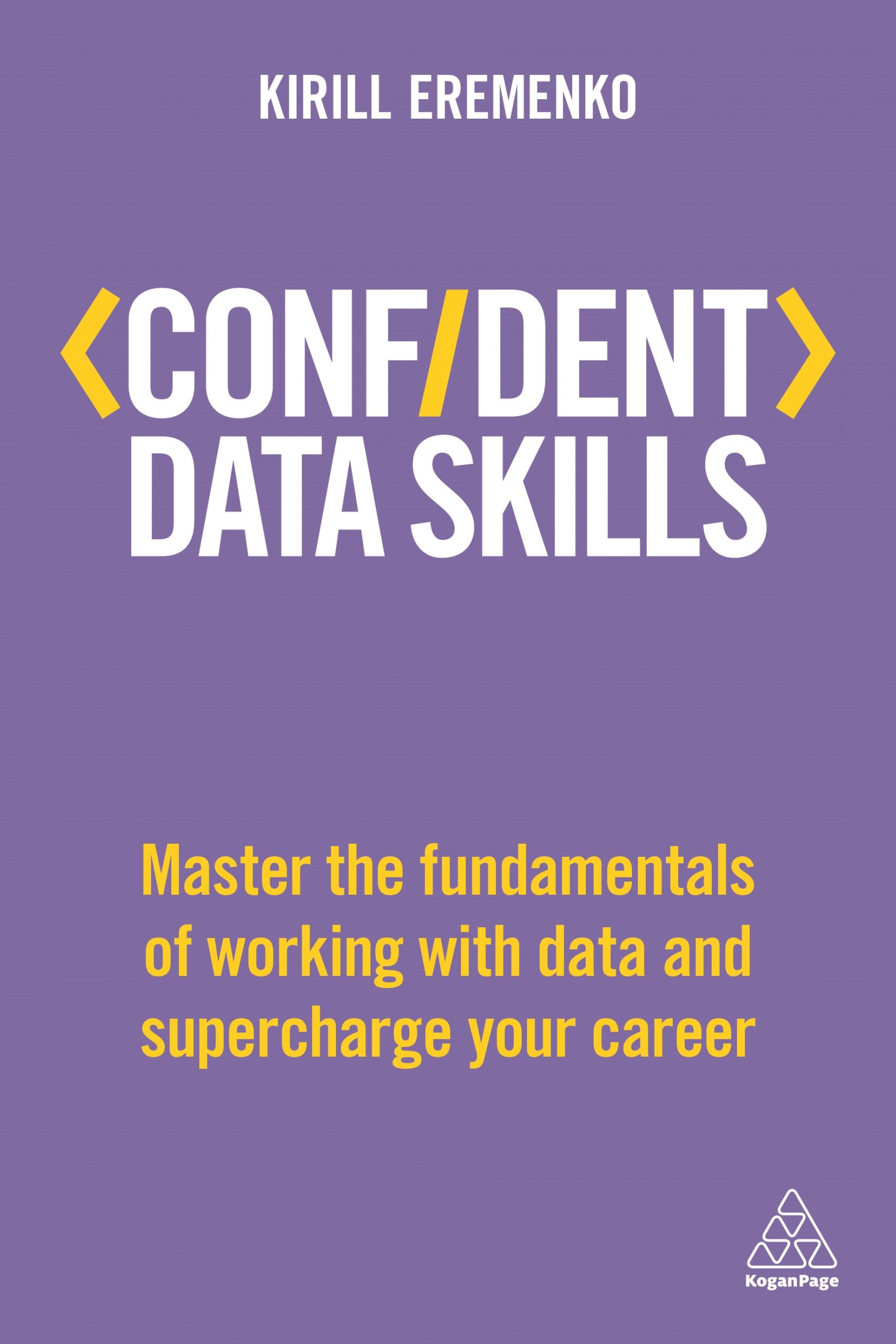With some degree of uncertainty about whether this book would “light my fire” I set about seeing what I did and didn’t know about the data game. After all, the subtitle of this book is ‘Master the fundamentals of working with data and supercharge your career’.
And after reading it, I think it does the former and we’ll have to see about the latter.
Overall, this is a most accessible book about data. So if you have the feeling of being behind the curve on data, this book will really help you. If you have some semblance of know-how, (which is how I’d describe me), you’ll find it comforting, helpful and reassuring. If you’re really into your analytics it’s stuff you already know and do I’m sure. The key is the word ‘fundamentals’ in the title. It’s a great place to start or push on a little more, when it comes to data skills.
Kirill uses a nice tone throughout this book. Via decent metaphors (data is the propeller behind technology inventions and our data exhaust) and has a useful mix of technical insight and high-level case study to structure the reading flow into nice chunks.
Kirill uses the known trio of data’s 3 Vs – Volume; Velocity; Variety as an early mention to set context of data being everywhere. And gives us a really useful Maslow’s Hierarchy of Needs but for data. This is a useful place to start if you’re building your strategy at an individual and organisation/function level.
Using the “solving a problem like…” frame in the middle of the book gives a useful and practical way to look at how data plays a vital part in your solutions thinking. This takes the book away from pure commentary into useful pragmatism.
Kirill’s covering of unstructured data and what to do about it; and then moving into data science processes, (identify and prepare data; analyse it; visualise it and present it), gives a really clean language way to think about your use of data. At the end of the book are many ways to present data and what format might work best depending on the nature of your analytics process or size, complexity or purpose of the data being visualised.
You can geek out on Euclidean distances, Bayes Theorem, decision trees and K-Nearest Neighbours which were the parts I knew least about and were useful to know and understand.
And so overall, Confident Data Skills is an accessible way to start your everyday data scientist element to your work. A book I found surprisingly light and reader-friendly with a lot of useful, well presented elements on a subject many have over intellectualised and frightened people over.
Kirill has given data a new found warmth, comfort and usability.
Perry Timms, Founder and Chief Energy Officer, PTHR
Published by Kogan Page







